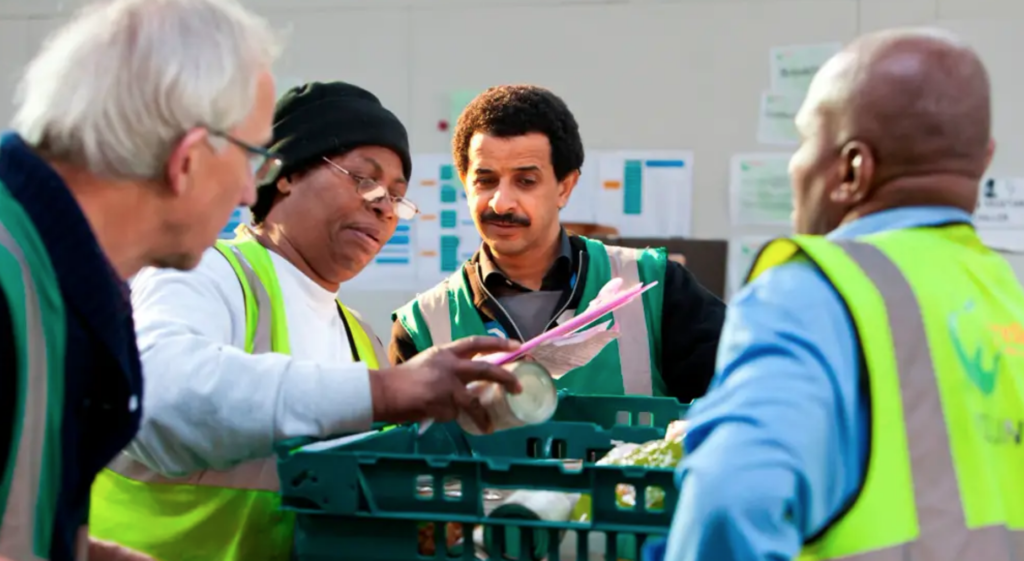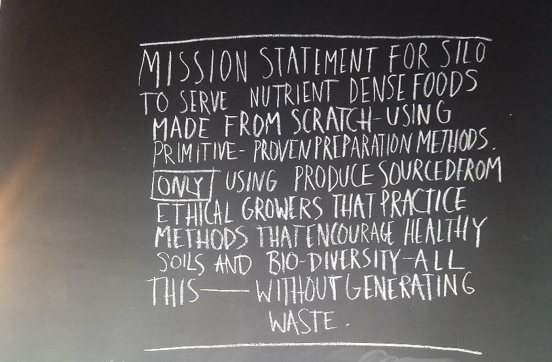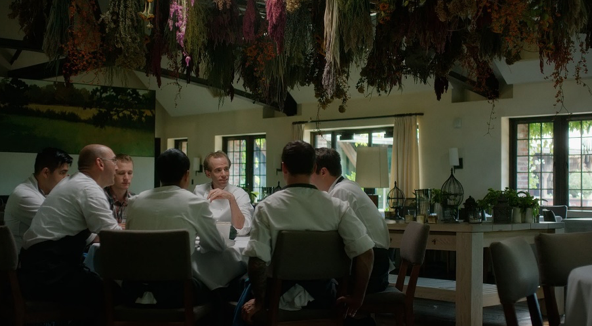This entry is the latest in our February 2019 “Food and Culture” series. This post is written by Emily Bohobo N’Dombaxe Dola , final year student in International Development.
In October last year, the UN Intergovernmental Panel on Climate Change (IPCC) published its landmark Special Report on Global Warming of 1.5 °C (SR15), which showed that a target of 1.5°C in temperature increase above pre-industrial levels is not only attainable, but also significantly less devastating for ecosystems than a 2OC temperature increase. The findings were met with significant consideration, alarm and scrutiny. A key issue widely discussed as a result was the need for a shift in dietary habits towards plant-based diets, to support climate change mitigation efforts. It is estimated that agriculture contributes to around 10-12% of global anthropogenic greenhouse emissions, most of it coming from livestock.
Whilst it is important to reflect on the impact of our lifestyle on climate change, there is also a need to be nuanced. Plant-based eating can’t be appropriately considered as a solution without first addressing the system our food consumption is embedded in. The agricultural industry is questionable beyond its livestock sector. For instance, the mass productions of soy, a popular meat-alternative, has often been criticised due to its role in deforestation, soil erosion, and land grabbing. Hence, when discussing climate change and agriculture, it is essential to include a need for alternative and sustainable production practices, such as agroecology.
On December last year, I had the opportunity to attend the United Nations Framework Convention on Climate Change’s (UNFCCC) COP24 in Katowice, as parties worked on the Rulebook for the Paris Agreement. I was there as an observer, part of a UK youth climate organisation. I was also involved with the agriculture working group of YOUNGO (the Youth NGOs constituency to the UNFCC), composed of young people from all over the world. Our work was centred around the Koronivia Joint Work on Agriculture (KJWA), the main vehicle within the UNFCCC/COP to discuss agriculture.
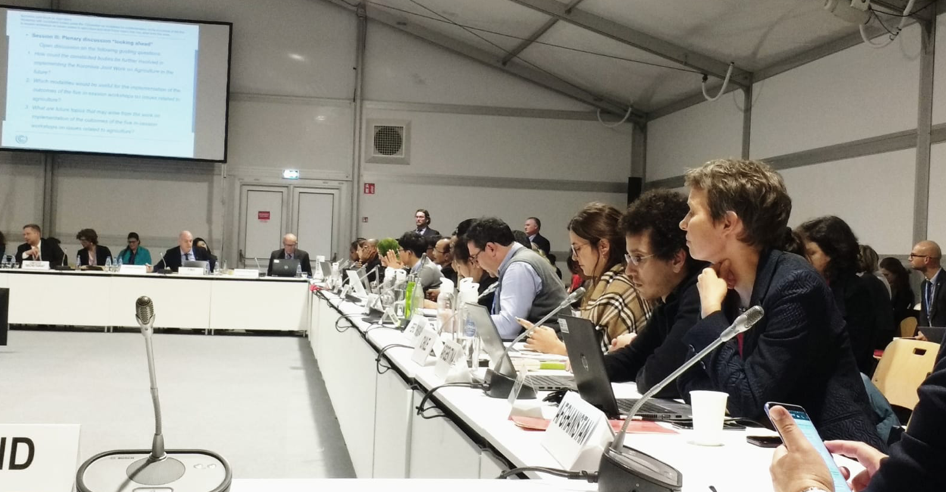
A main concern for the group was the climate, environmental and social impact of the dominant agricultural system, especially in relation to agro-corporations and mass-intensive production. Whilst we advocated for plant-based diets and other changes in lifestyle (e.g. waste reduction), we believed that changing consumption without transforming production is not enough. Even if the livestock industry is to be downsized, as part of a just transition, there is still a need for sustainable production alternatives. We also stressed how the livelihoods and way of life of small-scale farmers are equally threatened by climate change, with a mutual relationship between both areas.
My stance on this issue, reflected above, isn’t just informed by my involvement in climate activism or by my studies at Sussex, but also by experiences such as my one-month open residency in Senegal. Though the residency was with an arts organisation in the city of Saint-Louis, I did more than artistic work. I conducted my own research-oriented project and, as part of it, I participated in activities about the history, society and environment of the Saint-Louis region. One of them was a visit to Doune Baba Dieye, ‘the Sunken Village’.

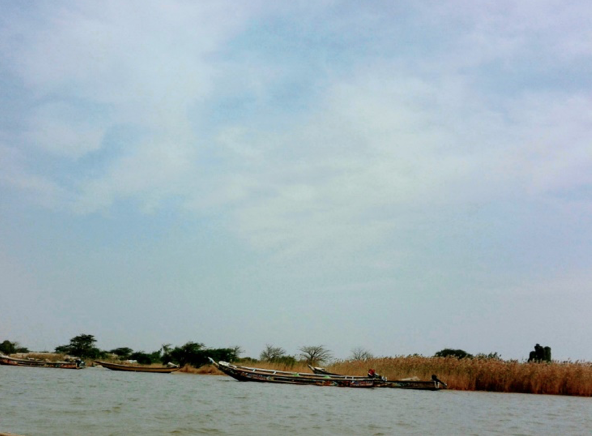
Through a boat expedition led by Doune Baba Dieye’s village chief, I learnt about the effects of the flooding disaster, how lands were slowly reversing, and how locals were making the area habitable again through their traditional ecology and sustainable practices. When the sunken lands started to re-surge, tree-planting became key to prevent further coastal erosion. Additionally, by planting specific species that help with desalinization, through their natural filtration properties, locals made sustainable organic orchards in the reappearing islets, growing vegetables like cabbage, watermelon and potatoes. ‘Artificial’ islets had also been created, for migratory birds. Unfortunately, many flora and fauna species were unable to adapt to the mix between freshwater and seawater as a result of the disaster.

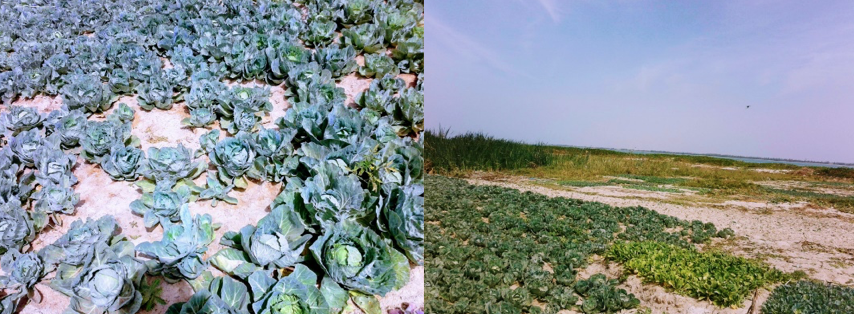
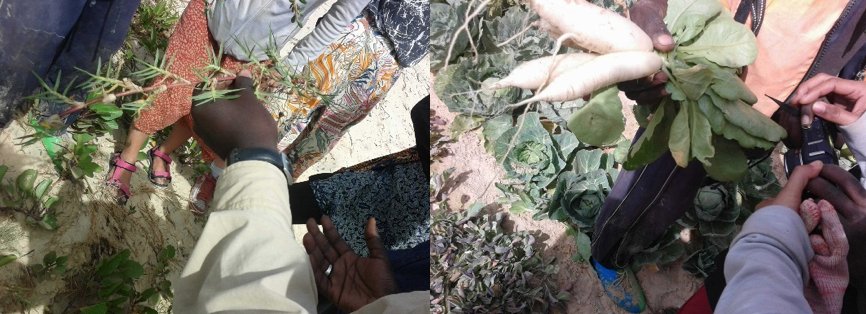
The above case is not a unique one. Indeed, locals in Doune Baba Dieye had even shared their knowledge and practices with Dutch visitors who were suffering from similar environmental issues in the Netherlands. The effects of climate change, such as extreme weather conditions, are not as distant as often portrayed: they have already affected many communities globally. Therefore, moving towards sustainable agriculture isn’t just a “green choice”: it is a way to adapt to the impacts of climate change. Besides, practices such as agroecology have the potential to reduce greenhouse emissions. It is no surprise that organisations like the Alliance for Food Sovereignty Africa (AFSA) have pushed for organisms like the African Union to scale-up agroecology initiatives, in light of commitments to sustainable production and climate-resilient systems.
The SP15 sparked important conversations. However, there is a need to go beyond lifestyle changes. It is not enough to promote plant-based diets if the production that upholds them also degrades the environment and harms communities. Truth be told, not even focusing on agricultural production is enough: other issues need to be considered, such as international trade and the advertisement industry. Moreover, it can’t be ignored how agriculture is both the livelihood and way of living of many people across the world. Ultimately, there is a need for transformational climate action. As it was chanted by activists during an action/protest at COP24, we need system change, not climate change.


